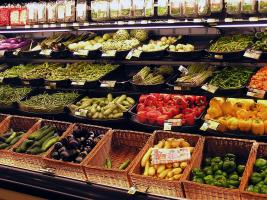
by Eve Solomon (Huffington Post)
Here at HuffPost Green, we think that fast food often embodies what's wrong with how America eats: it's fast, cheap, and easy. Today's concerns about obesity and sustainability is causing many fast food restaurants to at least offer some lower calorie and "healthier" options. Despite the trends, the fast food and chain restaurant industries still boast an abundance of highly-processed high calorie foods and factory-farmed meat. Whether you eat at McDonald's daily or refuse to touch the stuff, check out this slideshow of some of the most extravagant fast foods past and present. From a 4-patty burger to the cheesiest of cheese fries, Huffpost Green explores some of the heaviest food options out there.
(click headline to continue....)





































